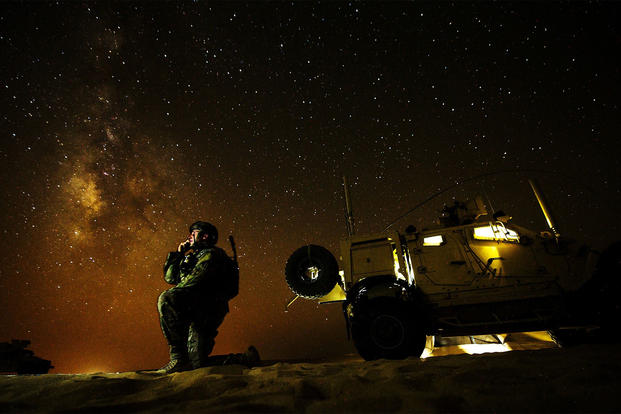The general overseeing the Air Force's space operations says future operators must be prepared to fight there as the U.S. braces to face off against a near-peer enemy far above the planet.
Gen. John Raymond, head of Air Force Space Command, said training for future space missions will look more like what airmen experience when preparing to fight in other domains.
"We have the world's best space operators, without any close second," he said at the annual Air Force Association conference outside Washington, D.C. "But I will tell you what we are training them in today is a little different than [how] we've had to train them in the past, and that's due to the threat."
That threat comes with a need for new training programs that put troops in mock-contested competitions in space, Raymond said. They're developing "space flags," comparable to the hyper-realistic combat training missions known as Red-Flag exercises that pilots participate in, alongside allied partners, several times a year.
"We have to be able to fight," he said.
There's a growing understanding among allies that space will be a contested environment in the future, he added. Just as troops can't fight alone and expect to win on land, in the air or at sea, the same is true of space. "We haven't needed to have partners in space before. It was a benign domain. ...That's why we're working really hard to develop those partnerships in space we have in all other domains."
Since President Donald Trump announced the creation of a future Space Force, Raymond said there's a "great alignment" across the government in terms of supporting space missions.
"In the past, the relationships that we've had with our warfighting partners have largely been one-way relationships," he said. His command, which includes about 30,000 airmen, has sent troops to integrate space into other missions. But they haven't gotten much support in return.
"Today, that relationship needs to be a two-way relationship -- supported and a supporting. I am convinced that if we are up against a peer adversary, we are going to have to fight for space superiority. That's going to require capabilities for multiple domains," Raymond said.
-- Gina Harkins can be reached at gina.harkins@military.com. Follow her on Twitter at @ginaaharkins.










